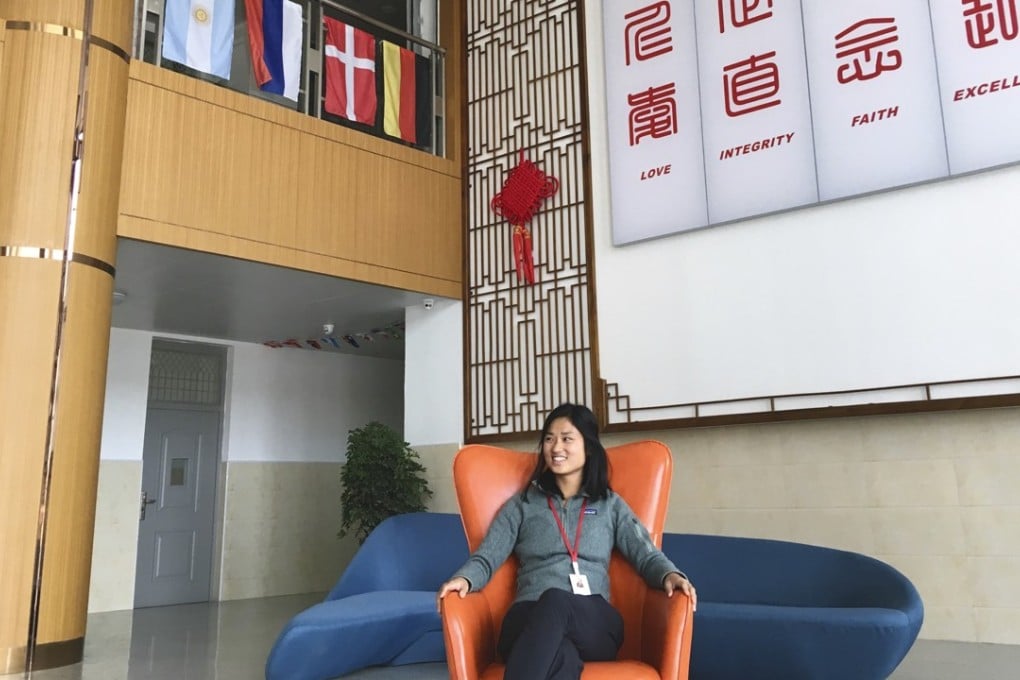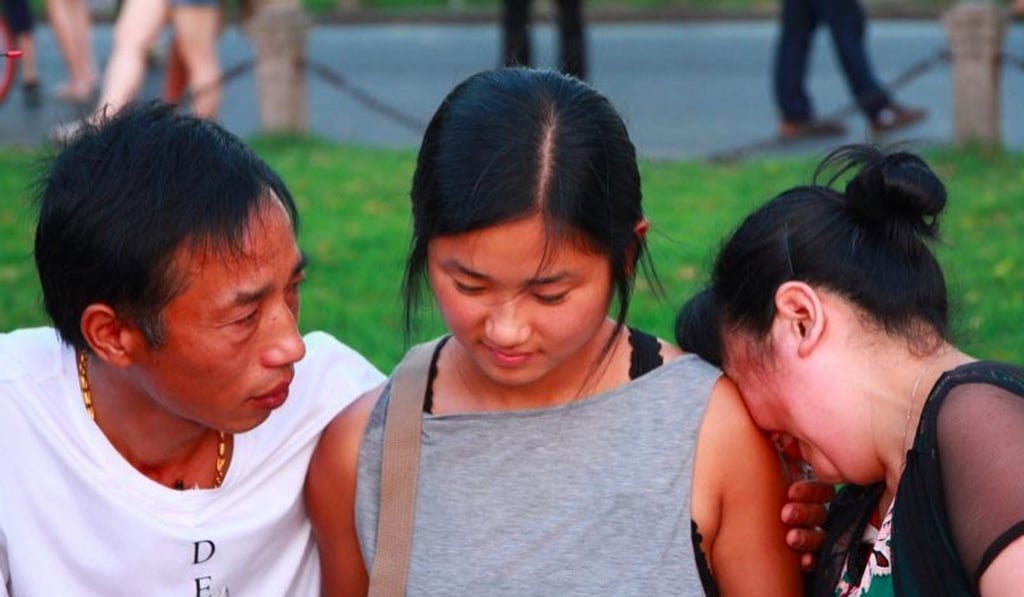One year on: adopted girl, reunited with birth parents on a Hangzhou bridge, returns to China to teach English, learn about herself
- Kati Pohler of Michigan has returned to China and is getting to know her birth family
- Her emotional reunion with her long-lost Chinese mother, father and sister was watched by millions the world over in a BBC documentary

At 4pm on August 26 last year, 22-year-old Catherine Su Pohler, whom everyone calls Kati, met her Chinese birth parents and older sister for the first time.
Kati’s biological mother, Qian Fenxiang, began to sob when the college student, from the American state of Michigan, arrived at the rendezvous: the Broken Bridge, in Hangzhou, Zhejiang province. Qian ran up to the young woman, whose face so closely resembles her own, flung her arms around the child she had not seen since giving her up at birth, and said repeatedly in Mandarin, “I finally get to see you. Mother is so sorry.”
That heart-rending moment caught the world’s attention. Documentary filmmaker Chang Changfu had been instrumental in bringing the two parties together, and his crew was on hand to record the scene as it unfolded on the eve of the Qixi Festival. The festival is an auspicious one for reunions: the seventh day of the seventh lunar month is the only day of the year when, in Chinese mythology, two star-crossed lovers are allowed to meet on a celestial bridge.
Media in mainland China also gave a great deal of coverage to the meeting. It was, after all, the most universal of stories: one of love lost and found. It resonated with many of Kati’s fellow adoptees and their families, too.
The United States alone is home to more than 80,000 children who have been adopted from China since official records began, in 1999. About 85 per cent of those are female, because China’s draconian one-child policy (enforced from 1979 until 2016) meant many families – in a patriarchal society – chose to abandon or even kill baby girls so that they could try for a boy instead.

In many other cases, illegal second children were given up for fear of substantial fines and possible jail sentences, as was the case with Kati’s biological parents.
